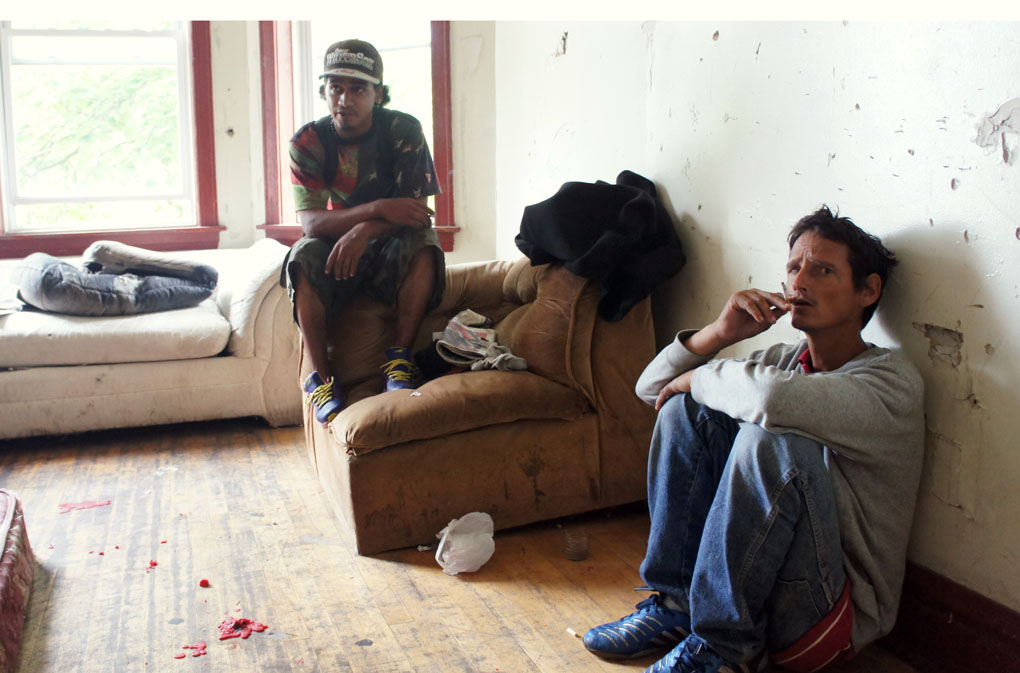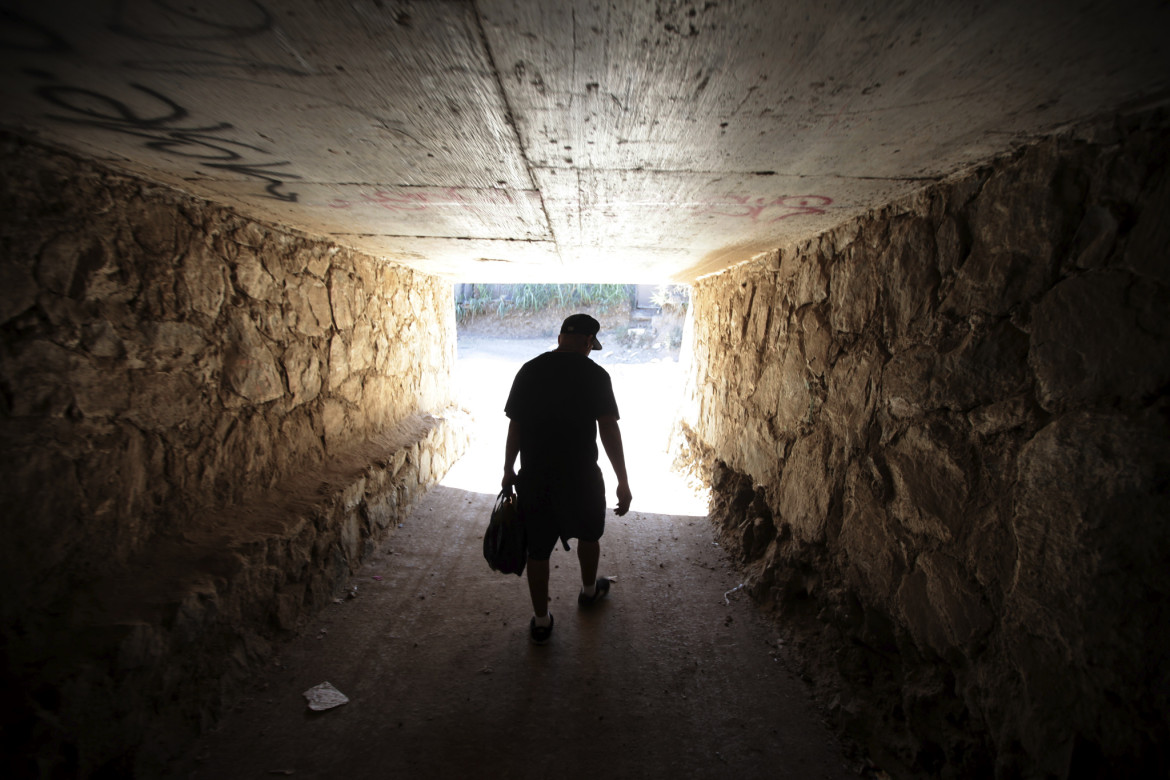FIJ Grant Recipients Continue Long Tradition of Uncovering Untold Stories
 The hundreds of journalists we’ve supported over the years have made a tremendous impact. But the most significant beneficiaries are the readers and communities who use the reports that grants from the Fund help produce to inform decisions, advance change, and support social progress.
The hundreds of journalists we’ve supported over the years have made a tremendous impact. But the most significant beneficiaries are the readers and communities who use the reports that grants from the Fund help produce to inform decisions, advance change, and support social progress.
Beyond Seymour Hersh’s groundbreaking investigation of the My Lai massacre that marked one of the Fund’s first successes, projects we’ve supported deliver impact in communities across the country and around the world.
In 2015, FIJ-sponsored reporters produced more than 50 investigative stories. We are proud of their work and the impact generated by recent stories.
Some of the Projects Making a Difference in 2015
 Over the summer, Angel and Manuel lived together in an empty house near 51st and Throop, an area where vacant homes are common. (Photo by Adriana Cardona-Maguigad) |
Adriana Cardona-Maguigad investigated the Puerto Rico-Chicago drug addict “pipeline” for This American Life and WBEZ-Chicago. The impact of her work was immediate, and continues to this day.
For a year, she looked into how police and other government officials in Puerto Rico were sending addicts to unlicensed treatment centers in Chicago’s Spanish-speaking neighborhoods. The addicts were given one-way plane tickets to Chicago, where they were stranded, homeless and without the treatment they’d been promised.
The stories also ran in Hoy, a Spanish-language daily in Chicago, and The Gate, a community newspaper. The story was picked up locally and nationally by other media, including Univision.
Illinois State Senator William Delgado, who represents an area of Chicago with a high concentration of Puerto Ricans, has taken up the issue and worked directly with Puerto Rico Governor Alejandro Padilla’s office to provide services for Puerto Ricans stranded in Chicago. Cook County Sheriff Tom Dart’s office, which runs the county jail located in Chicago, investigated and found that federal funds had subsidized the Puerto Rico programs.
Perhaps more importantly, said Cardona-Maguigad, the story penetrated communities that aren’t regular consumers of traditional media — including the homeless, addicts and their families.
The story’s reach was indeed impressive. It broke WBEZ’s first-week viewership records by large margins, and there were countless tweets related to the story, said Kari Lydersen, co-director of the Social Justice News Nexus at the Medill School of Journalism. Cardona-Maguigad is a program fellow.
As to the role of FIJ, Cardona-Maguigad wrote:
“My story would have been impossible to do thoroughly without traveling to the source in Puerto Rico. The FIJ grant was essential to making this possible. I’d been investigating in Chicago for months, meeting scores of Puerto Ricans who had come here through links with government agencies. I spent many hours trying to call and contact these agencies from afar, with little success. Once I arrived in Puerto Rico I was able to nail down the story and get crucial interviews with local police and social service officials, drug addicts and their families.”
When the Kentucky Center for Investigative Reporting took a look at the state’s system of elected jailers – many of whom are paid to watch over jails that don’t exist – it revealed a “wasteful, nepotism-laced but little discussed system that costs Kentucky taxpayers approximately $2 million annually.” Reporter R.G. Dunlop worked with a rookie radio reporter and produced a 4,400-word story, which ran with several smaller sidebars and companion pieces. They also produced a radio feature that ran on public radio stations across the state.
Through partnerships, the series garnered prime story placements in several major metro newspapers, including the front pages of the Louisville Courier-Journal, the Lexington Herald-Leader and the Bowling Green Daily News. It also appeared in the Cincinnati Enquirer.
Within weeks, state legislators demanded change to the jailers system and the jailers’ association wrote opinion pieces that landed in the Courier-Journal and elsewhere. Ordinary citizens expressed alarm in letters to the editor and in online comments.
The story won a national Sidney Award from the Hillman Foundation, which honors deep storytelling and investigative reporting in the service of the common good.
Jeff Kelly Lowenstein, a freelancer for the Center for Public Integrity, found troubling discrepancies and what they tell the public about staffing levels on a public website that consumers use to shop for facilities. The website often reports substantially higher staffing levels. Kelly Lowenstein’s work, which earned a National Press Club Award, among others, helped prompt the U.S. Government Accountability Office to investigate. The Centers for Medicare and Medicaid Services has said it would change how it calculates staffing figures for the five-star system. Meanwhile, U.S. Rep. Paul Walker, R-N.C., proposed legislation to address the issue of nursing homes that receive government-backed mortgages, an issue raised by Kelly Lowenstein in his series.
Yvette Cabrera produced an eight-part series on the scores of undocumented immigrant children who found themselves in the custody of probation officers across California. Her startup investigative journalism unit in Santa Barbara was on a limited budget. She used her grant to travel to Tijuana and Northern California to interview key experts, including attorneys, probation officials and youth advocates.
The series, called “The Lost Boys,” was subsequently published in late August 2015 on the Voice of OC website, just as California Governor Jerry Brown was considering signing a bill that clarifies that a juvenile’s court documents are confidential regardless of immigration status and should not be shared with federal officials. Brown signed the bill into law in early September.
Stephanie Woodard has worked to bring attention to the challenges faced across Native America, historically disenfranchised by isolation, language barriers, limited access to the ballot box — and all but ignored by mainstream news media. In Alaska and South Dakota, she reported a surge in voter engagement among Native peoples as voting rights reforms, including early access to the ballot box, took root. The higher Native turnout among Native Alaskans helped elect a Native lieutenant governor, increase the minimum wage and strengthen environmental protections for Bristol Bay. In South Dakota, her reporting prompted the U.S. Justice Department to place monitors at polling places because of concerns over voter intimidation. Woodard noted that increased voter participation among Native Americans helped rename Shannon County, which overlaps Pine Ridge Indian Reservation, as Oglala Lakota County and helped vote out a white sheriff whom white voting officials had stationed in the doorway of a polling place to discourage turnout.
| The line outside Bronx Housing Court on a typical morning. (Photo by Adi Talwar) |  |
A series of stories by Kate Pastor for City Limits underscored the crises playing out in Housing Court in the Bronx, where tenants facing off with landlords “are at a severe disadvantage … not only because legal advice and basic instruction remain elusive for most, but also because the system is overburdened—trying to keep up with a tide of housing need in a borough where rent levels and tenants’ incomes are increasingly mismatched.” Pastor spent months following tenants and their travails. The result was a four-story package that helped spark dialogue. Comptroller Scott Stringer issued a report about language barriers in housing court. New York City Council Speaker Melissa Mark-Viverito announced the creation of an Office of Civil Justice to connect tenants with attorneys. And New York City Mayor Bill de Blasio pledged support for a “right to counsel” bill.
Journalism With a Global Reach
Christian Locka’s investigation into one of Cameroon’s palm oil companies revealed how one of the company’s contractors dumped human waste into the Mboma River, a key source for drinking water. His story, written for a French-speaking audience, generated interest from several other news organizations. “Journalists of the Guardian also came to my country, guided by me, and they produced a story, too,” Locka said.
For six months, Ana Arana reported on the violence that has plagued Juarez, Mexico. “Completing groundbreaking, long-form journalism is getting difficult every year,” Arana said. “I would not have been able to finish our project on how the city of Juarez had overcome its cycle of violence between 2007 and 2013. … The best part of the grant is its no-involvement clause, where they let the journalist work through their project without any intervention. Many other grants do not work this way.”
Ghana-based investigative reporter Kwabena Adu Koranteng has produced two investigations with the Fund’s assistance: “Slow Poisoning On Volta Lake…Fishermen Trap Fish With DDT” and “Water For Death: Sad Story Of How Over 4 Million Ghanaians Survive On Highly Polluted Densu River.” Both appeared on the front page of the New Crusading Guide newspaper and were picked up by other news outlets in Ghana. The stories have become a source of public discourse and spurred a water resource commission to establish a task force to go after polluters and fishermen. Koranteng used his funding to hire a cameraman and fixers to help with reporting. “In Ghana, journalists have problems accessing funds to undertake investigations,” Koranteng said. “Let me say: Thank you, FIJ, for your support and continue to help those of us in Africa to raise the standard of investigative journalism on the continent.”
To read more stories from FIJ-funded journalists, please visit FIJ.org. Click here to download a PDF version.







